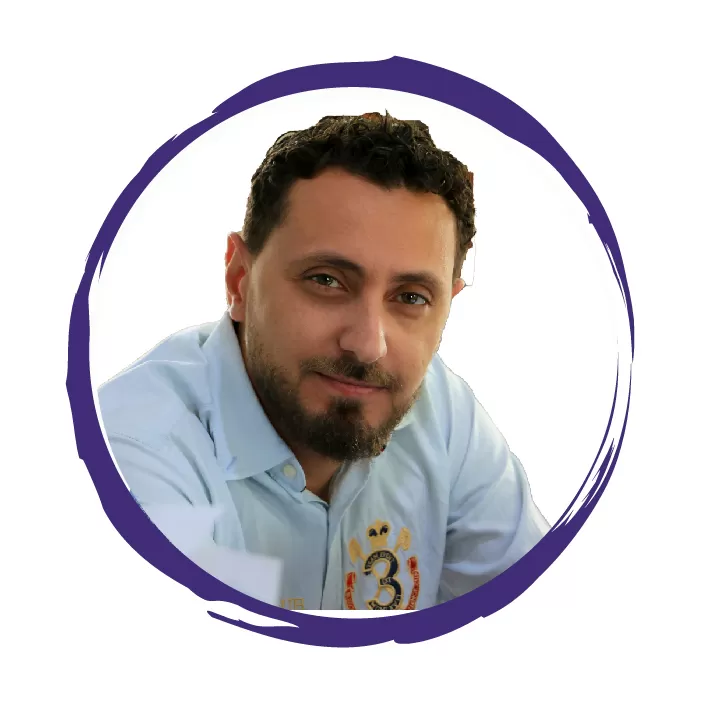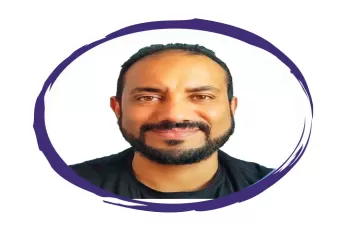Hope during a time of crisis
Since the war in Yemen escalated in 2015, according to OCHA HNO 2021, the armed conflict has forced over four million civilians into displacement and left them in dire need of humanitarian aid in order to survive. Yemen comes fourth in terms of the largest IDP crises globally, with 4 million people displaced, in addition to a wrecked economy, reversed pre-conflict development gains, exacerbated long-standing vulnerabilities, and a severely frayed Yemeni social fabric, causing immense suffering and leaving millions behind. There have been many attempts by local, as well as international, NGOs and UN agencies operating in Yemen to try to lift the burden off of peoples’ backs and to alleviate their suffering, yet, standard interventions such as food-basket distribution, shelter and awareness campaigns are considered temporary, unsustainable, and do not effectively help IDPs to integrate into their host communities.
In response to these gaps, better approaches were introduced to generate sustainable income through community service provision, which will eventually lead to better acceptance of displaced people in host communities. Furthermore, due to the collapsing economy, acquiring an academic degree isn’t necessarily enough to guarantee any source of income. Instead, those with small business or vocational training had better chances of securing a regular income.
Wael, 20, was displaced from Hodeidah governorate and was struggling to fund his studies and cover his own living expenses, Wael said: "I was trying to reconcile my studies with work all day, and the income I made barely covered my tuition," Wael, 20 years old, IDP from Hodaidah currently living in Sanaa.
Based on a recent Labor Market Assessment, the International Labor Organization (ILO) have adopted the Upgraded Informal Apprenticeship Program (UIAP) which grants youth access to recognized technical training and a high demand occupation. While the program included institutional training, on-the-job-training was the key to giving youth the chance learn how the market works through real experience.
The program’s turnout was beyond expectations. When young people heard about the opportunity to acquire new skills and be more productive, independent, and able to participate effectively to serve their hosting communities, they signed up in large numbers.
The program targeted young people between 18 and 38, and one of the participants, Ahmed, 14 [1], looked so young during the registration phase that he was asked for additional identification. When he confirmed, he was only 14, he was told he would not be able to participate due to his age. He quickly replied, “and how am I supposed to feed my mom and sister?” Ahmed was not ready to take no as an answer. The team contacted the donor and asked for approval, and eventually Ahmed was able to participate after being personally funded by a member of the program implementation team.
Ahmed lost his father in an incident unrelated to war, and was left with his mom and sister, who he feels a responsibility to financially support.
In one of these programs in Sanaa had great turnover and limited resources. This led to an unorthodox approach. By allowing additional participants to attend as “listeners”, the number of participants was increased to exceed the actual number of planned targets. The listener role was offered to any individual who was ready to learn, the only difference between this position and the program participants, was that they were excluded from any financial support provided to the initially targeted members, including reimbursements for fees (such as transportation fees), and required toolkits. The total number of people registered to the program was 345 with 320 specified by the project: a total of 25 listeners. This not only multiplied the program’s benefits, but also created a competitive atmosphere where the main participants worked harder knowing that if they underperformed, replacements already existed in the group.
In an unexpected turn of events, when the main participants collected their receivables they voluntary shared them with listener participants, to help them cover their expenses to continue the program. Not only this, all program participants worked together as a team in sharing information and experiences whenever possible.
Upon graduation, 75% of the participants managed to secure sustainable income based on their training, some by getting offers for job training workshops, and others by opening their own small businesses. The program was a life changing experience for participants in five governorates from the north and south of Yemen, benefiting over 900 people. Youth graduated with a chance to find work based on their skills, and discovered newfound dignity as well as acceptance from host communities.
Walid now owns a shop for motorcycle maintenance and parts, he said: "If I hadn't been accepted into the apprenticeship program, I would never have thought of opening my own business. The program and the trainers gave me the motivation, skills and experience needed. I learned from them all the necessary skills that would qualify me to open and run a motorcycle maintenance workshop. I named the workshop ‘Wael Workshop’, and I have even provided two job opportunities for two people, one of whom is Hamed, one of my colleagues from the apprenticeship program”. He added: “I would recommend more of these programs in countries facing crisis like Yemen with more focus on main governorates, were large portions of displaced people reside.”
[1] Name was changed for protection purposes.







